| A
R T I C L E S |
New Collectibles •05/25 - NECA Sesame Street: Count Von Count Ultimate Action Figure
•04/25 - Reaction Sesame Street: Big Bird and Snuffy •03/25 - NECA Sesame Street: Ernie Ultimate Action Figure, Bert Ultimate Action Figure
•03/25 - Boss Studios Fraggle Rock: Boober Action Figure, Wembley Action Figure, Mokey Action Figure, Sprocket Action Figure •08/24 - Reaction Sesame Street: Big Bird, Mr. Hooper, Sherlock Hemlock, Super Grover |
||
|
|
|

Munich Memories and Beyond
By
Luke Robbins
August 4, 2003
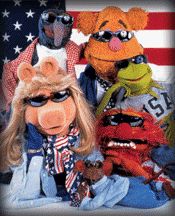 It
sounds like a plot right out of a Muppet movie - Kermit and his friends
get lured away to work for a mysterious businessman who promises to get
the gang on the road back to stardom. It all turns sour when the businessman
turns out to be a crook and the Muppets have to battle to get their show
on the air with little money and the realization that those false promises
could leave them bankrupt.
It
sounds like a plot right out of a Muppet movie - Kermit and his friends
get lured away to work for a mysterious businessman who promises to get
the gang on the road back to stardom. It all turns sour when the businessman
turns out to be a crook and the Muppets have to battle to get their show
on the air with little money and the realization that those false promises
could leave them bankrupt.
However, this is the tale of a real life story, played out not on some Hollywood set but in the boardroom’s of media companies across the world and involved the sale of the “Jim Henson Company” to German media giant “EM.TV”, their downfall, and a battle to find a new owner before it was too late. Luckily, like all Muppet movies, this story has a happy ending and Jim Henson’s children stepped in at the last minute to buy back the company, but the preceding three years will be known as the most turbulent period in the Henson Company’s history since its founder’s death.
An Offer They Couldn’t Refuse
To say that most Muppet fans were surprised to learn that Jim Henson’s five children - Brian, Lisa, Cheryl, John and Heather had sold their fathers business along with his precious Muppet characters to a Munich based media company almost unknown outside of Europe is an understatement. This was the case though on February 21st, 2000 when EM.TV & Merchandising AG signed a definitive agreement to acquire 100% of The Jim Henson Company in a half-cash and half-stock transaction valued at $680 million. The buyout ended 42 years of Henson family ownership, an aspect of the company they had considered one of its biggest strengths.
 From
the press release issued announcing the sale it seemed all parties were
to gain - EM.TV now taking control of Henson’s vast programming
library, their world renowned “Creature Shop”, interests in
“Sesame Street” and of course their world famous entertainment
brands including “Bear In The Big Blue House”, “Farscape”
and “The Muppets”. Importantly they were also gaining an instant
foothold on the North American and UK television markets which the Muppet
creators had traditionally focused on. In return, the Henson Company was
to be offered the chance to grow further as a company on a global scale
utilizing EM.TV’s financial resources, marketing skills and distribution
power whilst retaining their individual identity and independence. EM.TV
was to be a “hands off” owner. In reality, these promises
couldn’t have been further from the truth.
From
the press release issued announcing the sale it seemed all parties were
to gain - EM.TV now taking control of Henson’s vast programming
library, their world renowned “Creature Shop”, interests in
“Sesame Street” and of course their world famous entertainment
brands including “Bear In The Big Blue House”, “Farscape”
and “The Muppets”. Importantly they were also gaining an instant
foothold on the North American and UK television markets which the Muppet
creators had traditionally focused on. In return, the Henson Company was
to be offered the chance to grow further as a company on a global scale
utilizing EM.TV’s financial resources, marketing skills and distribution
power whilst retaining their individual identity and independence. EM.TV
was to be a “hands off” owner. In reality, these promises
couldn’t have been further from the truth.
So what could have driven Henson’s children to sell their late fathers creations that included Kermit the Frog, Miss Piggy, Gonzo The Great and Fozzie Bear - characters that they had grown up with and seen become household names the world over? Money would be the most obvious answer - the figure offered by EM.TV Chairman Thomas Haffa was thought by people familiar with the deal to be at least double what any other company was offering. However, it would not be fair to say they were motivated by greed. Although thought to be profitable, the Henson Company was facing increasing problems - most notably the Muppet brand, which accounted for a large portion of the organization’s revenue, was finding it hard to grow amongst properties which children found cooler like Pokemon. Their long term television production deal with ABC was about to expire as was their movie deal with Sony Pictures leaving Henson with nobody to fund their operations and the lack of any major distribution outlet. At first they had only been looking for a minority partner to invest cash in the company, but when what seemed like such a fantastic deal came along they made the decision to sell completely.
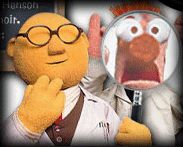 At
first things seemed to be going fine, especially a fortnight after the
announcement when EM.TV revealed plans to re-launch “The Muppet
Show” with 26 new episodes of the hit show from the 1970’s
and early 1980’s to be taped in England. Even legendary Muppeteer
and original show co-creator Frank Oz was promised to be involved in the
project and big names such as Britney Spears and Enrique Iglesias were
rumored to be among guests on the wish list. However cynics would probably
come to the conclusion that this announcement, while probably genuine,
was incredibly premature and made only for the same purpose as a publicity
stunt. It was strange that the news had been announced directly by EM.TV
rather than the Henson Company itself and it came with the rather cozy
story that Brian Henson and Thomas Haffa had jointly decided to revive
the show on a plane flight from New York to Munich. No scripts had been
written and no broadcast date or channel confirmed - looking back it seems
clear its main purpose was to show unity between Henson and their new
owners, keep the Muppets highly visible in the press, and encourage EM.TV’s
shareholders. It succeeded on all counts, but after a while all talk of
the new show died down.
At
first things seemed to be going fine, especially a fortnight after the
announcement when EM.TV revealed plans to re-launch “The Muppet
Show” with 26 new episodes of the hit show from the 1970’s
and early 1980’s to be taped in England. Even legendary Muppeteer
and original show co-creator Frank Oz was promised to be involved in the
project and big names such as Britney Spears and Enrique Iglesias were
rumored to be among guests on the wish list. However cynics would probably
come to the conclusion that this announcement, while probably genuine,
was incredibly premature and made only for the same purpose as a publicity
stunt. It was strange that the news had been announced directly by EM.TV
rather than the Henson Company itself and it came with the rather cozy
story that Brian Henson and Thomas Haffa had jointly decided to revive
the show on a plane flight from New York to Munich. No scripts had been
written and no broadcast date or channel confirmed - looking back it seems
clear its main purpose was to show unity between Henson and their new
owners, keep the Muppets highly visible in the press, and encourage EM.TV’s
shareholders. It succeeded on all counts, but after a while all talk of
the new show died down.
The key to future success, maybe, is to continue all the great things brought about over the last three years while expanding production, and trying to additionally rejuvenate classic properties like “Muppet Babies” and “Fraggle Rock”.
|
EM.TV was also busy, purchasing a 50% stake in Formula One auto racing for $1.6 billion, and even going as far as to suggest that Kermit the Frog should dump girlfriend “Miss Piggy” for a mechanic called “Mercedes” and host a TV show together designed to make it the most popular car amongst children. An idea canned by Mercedes-Benz themselves and a clause in the Henson sale contract which restricted the use of Muppet characters for commercial purposes.
 In
December of the same year, just 10 months after the acquisition was announced,
the cracks in EM.TV’s business had begun to show. There were complications
with the Formula One deal which were leading the company into trouble
and it had come to light that Thomas Haffa was to be investigated for
previously selling $396 million in bonds to investors without them being
aware of the companies future plans as well as a large amount of his own
shares illegally while the stock price was riding high. Most alarmingly
for the Henson Company discrepancies in EM.TV’s accounting had arisen
mid-year and were continuing to trouble them. Their half year financial
results were far less than what they should have been and the financial
unit at Henson was directly blamed for supplying bad data which led to
this, although this accusation was later withdrawn and instead the errors
blamed on confusion over international accounting practices. However,
damage had already been done and EM.TV’s stock price began to fall
- by Christmas it had plummeted 86% to rock bottom levels and the companies
pre-tax profits for the year also looked to be minuscule compared to those
projected earlier.
In
December of the same year, just 10 months after the acquisition was announced,
the cracks in EM.TV’s business had begun to show. There were complications
with the Formula One deal which were leading the company into trouble
and it had come to light that Thomas Haffa was to be investigated for
previously selling $396 million in bonds to investors without them being
aware of the companies future plans as well as a large amount of his own
shares illegally while the stock price was riding high. Most alarmingly
for the Henson Company discrepancies in EM.TV’s accounting had arisen
mid-year and were continuing to trouble them. Their half year financial
results were far less than what they should have been and the financial
unit at Henson was directly blamed for supplying bad data which led to
this, although this accusation was later withdrawn and instead the errors
blamed on confusion over international accounting practices. However,
damage had already been done and EM.TV’s stock price began to fall
- by Christmas it had plummeted 86% to rock bottom levels and the companies
pre-tax profits for the year also looked to be minuscule compared to those
projected earlier.
Desperately trying to raise cash, EM.TV began negotiations to sell a minority stake in the company to another German media giant, “Kirch Group”, and more importantly for Henson fans, sold the character rights for the Sesame Street Muppets to Sesame Workshop who had previously only shared control of them. This was both good news and bad - it meant the characters were safe from being sold to anybody else if EM.TV’s troubles continued but was also a clear signal to those at Henson that their parent company was prepared to sell off their assets to keep themselves afloat. Jim Henson’s children had eventually sold all their shares, but had lost some money throughout the year as the stock price fell meaning it was very unlikely that they received the full $680 million figure originally estimated. The Henson Company continued business as usual, but it was becoming increasingly obvious that with further trouble ahead for their parent company, it was highly likely they too could be put up for sale again and sold to the highest bidder.
Frog For Sale, Going Cheap
 It
didn’t take long for potential suitors to emerge, at least in the
eyes of the press who were keen to speculate on who could be next to own
the Muppet characters. Even before EM.TV officially announced their intention
to sell on March 13th, 2001 major names like Viacom, AOL Time Warner and
Disney had been reported as being interested in acquiring The Jim Henson
Company. In Germany, Thomas Haffa’s position had been strengthened
by an agreement finally being reached with Kirch for them to acquire a
minority stake in his company as part of a rescue package, but they were
also finding it hard to run the Henson Company from a distance, and had
been disheartened by news that the full rights to some of their shows
would not come under EM.TV control until nearly fifty years later. With
Henson’s lower than expected turnover and increasing need for finance,
it became a priority to dispose of the asset which they had such big plans
for just a year earlier.
It
didn’t take long for potential suitors to emerge, at least in the
eyes of the press who were keen to speculate on who could be next to own
the Muppet characters. Even before EM.TV officially announced their intention
to sell on March 13th, 2001 major names like Viacom, AOL Time Warner and
Disney had been reported as being interested in acquiring The Jim Henson
Company. In Germany, Thomas Haffa’s position had been strengthened
by an agreement finally being reached with Kirch for them to acquire a
minority stake in his company as part of a rescue package, but they were
also finding it hard to run the Henson Company from a distance, and had
been disheartened by news that the full rights to some of their shows
would not come under EM.TV control until nearly fifty years later. With
Henson’s lower than expected turnover and increasing need for finance,
it became a priority to dispose of the asset which they had such big plans
for just a year earlier.
The sale process lasted over two years but had originally intended to be much shorter. This too, had caused problems for EM.TV - other companies were aware of their situation and were keen to hold on for as long as possible in an effort to get a cheap deal from the German media company at a point where they simply had to sell or risk going bankrupt. The figures being talked about were nothing like the $680 million EM.TV paid at a time when intellectual property had become worth far less in the media industry and the tragic events of September 11th had affected the stock markets and meant times were hard. With the rights to the Sesame Street characters now sold it meant that the most EM.TV could really hope to gain from the sale of the Henson Company was at best, around half of what they had originally paid, a sum they were not immediately willing to accept. Early offers from both Disney and AOL Time Warner were thought to have been rejected out of hand.
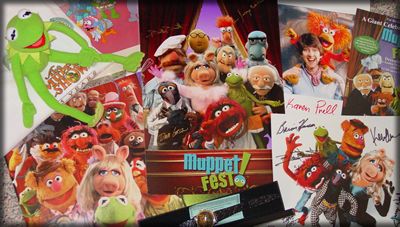 By
the time of MuppetFest, a fan
celebration organized by the Henson Company intended to kick off the 25th
anniversary celebrations for “The Muppet Show” in December
2001, EM.TV had hired investment bank Allen & Co to help sell the
cult characters and was still having trouble obtaining any reasonable
offers. If Walt Disney’s chairman Michael Eisner is to be believed,
this was because EM.TV were simply asking for too much. His company, keen
to acquire the Muppets after a failed take-over deal at the time of Jim
Henson’s death in 1990, wanted to add the Muppet characters to their
stable of evergreen children’s favorites, most famously including
Mickey Mouse. However, they remained an interested party throughout most
of 2002, rather than being in active negotiations as they watched and
waited for EM.TV to accept the situation they were in and resolve the
stalemate. Interest from other large media companies was thought to also
have died down with the main discussions now being with smaller European
media companies like London based Entertainment Rights PLC and Classic
Media who were both keen to exploit the branding and licensing opportunities
that came with a property like the Muppets as well as distribution of
the program library rather than seeking to expand the company creatively.
Henson’s own management team was also seeking funding to make a
bid in a buyback deal.
By
the time of MuppetFest, a fan
celebration organized by the Henson Company intended to kick off the 25th
anniversary celebrations for “The Muppet Show” in December
2001, EM.TV had hired investment bank Allen & Co to help sell the
cult characters and was still having trouble obtaining any reasonable
offers. If Walt Disney’s chairman Michael Eisner is to be believed,
this was because EM.TV were simply asking for too much. His company, keen
to acquire the Muppets after a failed take-over deal at the time of Jim
Henson’s death in 1990, wanted to add the Muppet characters to their
stable of evergreen children’s favorites, most famously including
Mickey Mouse. However, they remained an interested party throughout most
of 2002, rather than being in active negotiations as they watched and
waited for EM.TV to accept the situation they were in and resolve the
stalemate. Interest from other large media companies was thought to also
have died down with the main discussions now being with smaller European
media companies like London based Entertainment Rights PLC and Classic
Media who were both keen to exploit the branding and licensing opportunities
that came with a property like the Muppets as well as distribution of
the program library rather than seeking to expand the company creatively.
Henson’s own management team was also seeking funding to make a
bid in a buyback deal.
It wasn’t until October, 2002 that things looked to be coming to a head. It’s thought Allen & Co had convinced EM.TV to ease back its asking price to around $175 million so that a new round of bids would be more likely to end in success. The Henson Companies performance had also improved considerably during the 25th anniversary celebrations with a new Muppet television movie to air on NBC at Christmas, a new wave of merchandising, and a highly visible media profile with numerous TV appearances. The resignation of chairman, Brian Henson and the cancellation of the hit Science Fiction show “Farscape” however, both came as blows to the company at such an uncertain time.
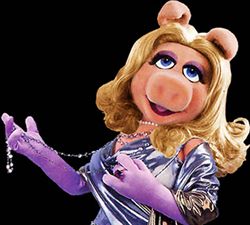 It
was during this new round of bidding that offers were made by Billionaire
Haim Saban, responsible for bringing “The Mighty Morphin Power Rangers”
to prominence and Dean Valentine, former president and CEO of United Paramount
Network (UPN) who was looking to start a new production venture primarily
concentrating on direct-to-video releases. While Haim Saban was haggling
over the asking price and also hedging his bets with an additional interest
in acquiring now insolvent German company KirchMedia, it was Valentine’s
offer that EM.TV found most attractive. Instead of seeking to own the
entire Jim Henson Company he was offering a deal where he bought just
49.9% leaving EM.TV with both the money to pay their debts and able to
retain the controlling interest in Henson and access to their character
and program rights. A letter of intent was signed on Christmas Eve and
both companies spoke about the deal to the press. Dean Valentine and his
new management team would move in at the Henson Company’s base in
Los Angeles running day-to-day operations with EM.TV continuing to play
the role in the company’s management it had done in the past. Everything
seemed set, but while the deal was being finalized it emerged Valentine’s
financing was far from solid and hung on a number of tenuous elements
that led to the deal unraveling. In March 2003, after failing to come
to any further agreement, the sale was called off. Haim Saban was no longer
interested in the Muppets and instead more dedicated to his battle for
KirchMedia which only left the small European media companies and a rather
odd offer from zany inventor and entrepreneur, Herbert L. Becker, who
was developing telecasting via the Internet.
It
was during this new round of bidding that offers were made by Billionaire
Haim Saban, responsible for bringing “The Mighty Morphin Power Rangers”
to prominence and Dean Valentine, former president and CEO of United Paramount
Network (UPN) who was looking to start a new production venture primarily
concentrating on direct-to-video releases. While Haim Saban was haggling
over the asking price and also hedging his bets with an additional interest
in acquiring now insolvent German company KirchMedia, it was Valentine’s
offer that EM.TV found most attractive. Instead of seeking to own the
entire Jim Henson Company he was offering a deal where he bought just
49.9% leaving EM.TV with both the money to pay their debts and able to
retain the controlling interest in Henson and access to their character
and program rights. A letter of intent was signed on Christmas Eve and
both companies spoke about the deal to the press. Dean Valentine and his
new management team would move in at the Henson Company’s base in
Los Angeles running day-to-day operations with EM.TV continuing to play
the role in the company’s management it had done in the past. Everything
seemed set, but while the deal was being finalized it emerged Valentine’s
financing was far from solid and hung on a number of tenuous elements
that led to the deal unraveling. In March 2003, after failing to come
to any further agreement, the sale was called off. Haim Saban was no longer
interested in the Muppets and instead more dedicated to his battle for
KirchMedia which only left the small European media companies and a rather
odd offer from zany inventor and entrepreneur, Herbert L. Becker, who
was developing telecasting via the Internet.
|
It may not be easy for the new management to achieve everything they want. Difficult choices will have to be made, but it does seem all the elements are there for success.
|
For some time the Walt Disney Company had been preparing to make an offer for Henson and things were getting desperate for EM.TV. They had a $66 million dollar loan that had been due to be paid back at the end of 2002 and were still in business only because its lenders were extending that date as the sale was looking near to completion. The previous December it had been thought Disney might offer as much as $135 million to get the Muppets but analysts were now telling them around $70-$100 million was a far more realistic price to pay. Chief Executive and Chairman Michael Eisner, thought to be handling negotiations himself even went on record publicly at Disney’s annual shareholder meeting to say that he thought they would reach a deal with EM.TV soon but it was unlikely to be for anywhere near the $100 million mark. They weren’t just haggling over the price either, it seemed that Disney might just be interested in the Muppet characters themselves, and the rights to Henson’s program library, possibly not even acquiring The Jim Henson Company as an organisation at all. They weren’t thought to be interested in ownership of the Creature Shop which would mean the company being split up, and EM.TV receiving less money in exchange for being able to hold onto some of Henson’s other assets or sell them elsewhere. It seems that EM.TV was not ready to contemplate a deal like this, as Disney pulled out of negotiations two weeks before Henson was finally sold citing legal reasons. If they had been able to purchase certain assets it would have meant less legal complications in the German courts than buying the entire company from EM.TV would cause. It had been speculated for some time that Disney was not prepared to get into a legal mess that could mean them risking large amounts of money and angering their shareholders.
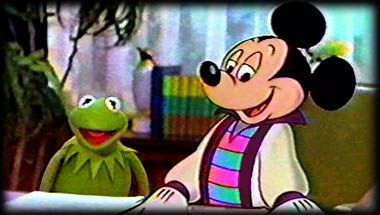 At
the same time as Michael Eisner was in the final stages of talks, a last
minute offer was also made by Classic Media, known for some time as being
interested in purchasing the Henson Company. They had arranged a deal
where they would join forces with Sesame Workshop and Sony to be able
to compete with the deep pockets of a company like Disney. In this agreement
they would use Sony subsidiary Columbia Tristar to bankroll the deal in
exchange for allowing them to continue distributing Henson movies and
home videos that they had already been doing for quite some time and were
due to renew anyway. However, while these negotiations were being discussed
five other potential bidders had been watching developments and decided
to get involved.
At
the same time as Michael Eisner was in the final stages of talks, a last
minute offer was also made by Classic Media, known for some time as being
interested in purchasing the Henson Company. They had arranged a deal
where they would join forces with Sesame Workshop and Sony to be able
to compete with the deep pockets of a company like Disney. In this agreement
they would use Sony subsidiary Columbia Tristar to bankroll the deal in
exchange for allowing them to continue distributing Henson movies and
home videos that they had already been doing for quite some time and were
due to renew anyway. However, while these negotiations were being discussed
five other potential bidders had been watching developments and decided
to get involved.
Jim Henson’s children - Brian, Heather, Lisa, Cheryl and John had been finding it more and more agonizing to watch the long and drawn out sale of their father’s company as time went on. They had wanted a deep pocketed major industry player like Disney to own their fathers creations and fund the Henson Company so that it could continue to rejuvenate them. When Eisner withdrew from negotiations it was the last straw and they decided to hammer out a deal to regain control of the company they had grown up with. It was to be for $89 million which comprised of $78 million of their own cash and the $11 million in liquid assets currently held by the Henson Company. Beating other bidders, including Classic Media/Sesame Workshop who’s offer was close to being accepted, they entered negotiations and quickly managed to sign a definitive agreement with EM.TV. On 7th May, 2003 it was announced they were to regain ownership of The Jim Henson Company (minus a few assets) for $591 million less than they had originally been paid for it. Thomas Haffa along with his brother Florian had been convicted of securities fraud in Germany just a month earlier.
On With The Show
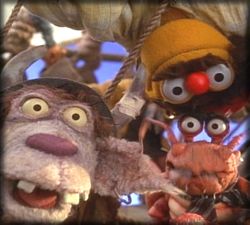 When
news of the sale broke it came as a complete surprise to most Muppet fans
who were delighted to see the company back in the hands of the Henson
family, but questions persist as to whether this was really the most beneficial
outcome that could have been hoped for. The move by Jim Henson’s
children meant his characters had been saved from being split from the
rest of the company or exploited by any means under the ownership of others
who didn’t have such strong and emotional connections to the Muppets.
However, it also meant that they would be running the company on a ‘go-forward’
basis - dependant on money from licensing, distribution and partnership
deals which would need to be actively sought. With the companies liquid
assets taken by EM.TV as part of the deal it also meant immediate funding
was tight and rumors suggested many long-term staff members were made
redundant in the run up to the hand-over date.
When
news of the sale broke it came as a complete surprise to most Muppet fans
who were delighted to see the company back in the hands of the Henson
family, but questions persist as to whether this was really the most beneficial
outcome that could have been hoped for. The move by Jim Henson’s
children meant his characters had been saved from being split from the
rest of the company or exploited by any means under the ownership of others
who didn’t have such strong and emotional connections to the Muppets.
However, it also meant that they would be running the company on a ‘go-forward’
basis - dependant on money from licensing, distribution and partnership
deals which would need to be actively sought. With the companies liquid
assets taken by EM.TV as part of the deal it also meant immediate funding
was tight and rumors suggested many long-term staff members were made
redundant in the run up to the hand-over date.
A major name in media like the Walt Disney Company would have been able to give Henson the resources it needed right from the start without having to search elsewhere and with its power and backing, could almost guarantee them success. They too were not completely ideal though - they had begun to gain a reputation for producing quantity over quality and would have always put their own home-grown brands first meaning Kermit would have always been living in the shadow of Mickey Mouse. It’s significant that the Henson family were hesitant to make a bid for the company until this kind of offer, even with it’s negative aspects, was no longer possible - but even if Jim Henson’s own children felt that the Muppets might have had a better chance with someone else, there were many more benefits to them being back at the helm rather than the other smaller media companies who had shown interest, and although it was stated not to be among plans for the immediate future, there remains the chance of a more suitable major player being sought to take-over the characters at some point.
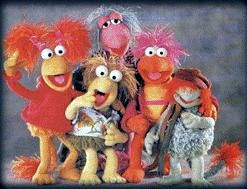 So
what’s next for the Jim Henson Company? While management wise, the
company will revert back to something very similar to its days before
EM.TV, albeit with a promised ‘makeover’, times have changed
for the better. Under CEO Charlie Rivkin’s guidance, and even with
its parent companies problems hanging around its neck like a ball and
chain, the 25th anniversary of “The Muppet Show” gave Henson
a springboard to launch a major marketing, programming and licensing coup.
Using MuppetFest as a showcase for the company’s properties as well
as showing possible partners the dedication of the fan base, it proved
the Muppets could still be ‘cool’ and deals for action figures,
video games, clothing and a whole host of other merchandise followed.
As well as promotions with companies like McDonald’s and NBC’s
commissioning of the television movie “It’s A Very Merry Muppet
Christmas” which proved a massive success. Since the end of the
anniversary celebrations those at Henson have managed to keep up this
momentum and continue to seek strategic partners meaning new production
deals and the guarantee of a steady stream of much needed licensing revenue.
So
what’s next for the Jim Henson Company? While management wise, the
company will revert back to something very similar to its days before
EM.TV, albeit with a promised ‘makeover’, times have changed
for the better. Under CEO Charlie Rivkin’s guidance, and even with
its parent companies problems hanging around its neck like a ball and
chain, the 25th anniversary of “The Muppet Show” gave Henson
a springboard to launch a major marketing, programming and licensing coup.
Using MuppetFest as a showcase for the company’s properties as well
as showing possible partners the dedication of the fan base, it proved
the Muppets could still be ‘cool’ and deals for action figures,
video games, clothing and a whole host of other merchandise followed.
As well as promotions with companies like McDonald’s and NBC’s
commissioning of the television movie “It’s A Very Merry Muppet
Christmas” which proved a massive success. Since the end of the
anniversary celebrations those at Henson have managed to keep up this
momentum and continue to seek strategic partners meaning new production
deals and the guarantee of a steady stream of much needed licensing revenue.
The key to future success, maybe, is to continue all the great things brought about over the last three years while expanding production, and trying to additionally rejuvenate classic properties like “Muppet Babies” and “Fraggle Rock”. Shows like these may be able to find a new niche now that nostalgia is enjoying renewed popularity among the early-to-mid twenties crowd and may also attract a new audience of children which would mean a whole new generation welcoming the Muppets into their lives. In fact the “Muppet Babies” cartoon will receive a huge promotional push over the next two years with new merchandise and a television advertising campaign, but this also comes at a time when both the nostalgia and pre-school markets are crowded with most cult properties having re-launched much earlier. New programming is being made specifically for the youth of today including other projects from Henson themselves which are rumored to include an idea by “Bob the Builder” creator, Keith Chapman.
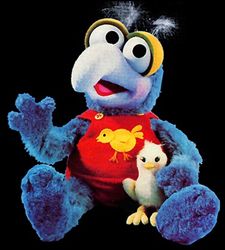 It’s
interesting to note that the most successful and original ideas for new
children’s programming at the company over recent years have come
from Henson people based in the UK, specifically Angus Fletcher, executive
producer and creator of both “The Hoobs” and “Construction
Site”. Other than “Bear in the Big Blue House” most
non-Muppet production in the USA has been met with spotty performance
levels and failed to capture the attention and imagination like in the
years Jim Henson was still alive. Jim Henson Pictures has yet to make
any great impact within the film industry. Whatever the case though, it’s
great to see the company keen to experiment with new ideas, especially
when they found success not so long ago in the Science Fiction world with
“Farscape”. The series could return in some form and the great
work done at the Jim Henson Creature Shop wins award after award, each
and every year.
It’s
interesting to note that the most successful and original ideas for new
children’s programming at the company over recent years have come
from Henson people based in the UK, specifically Angus Fletcher, executive
producer and creator of both “The Hoobs” and “Construction
Site”. Other than “Bear in the Big Blue House” most
non-Muppet production in the USA has been met with spotty performance
levels and failed to capture the attention and imagination like in the
years Jim Henson was still alive. Jim Henson Pictures has yet to make
any great impact within the film industry. Whatever the case though, it’s
great to see the company keen to experiment with new ideas, especially
when they found success not so long ago in the Science Fiction world with
“Farscape”. The series could return in some form and the great
work done at the Jim Henson Creature Shop wins award after award, each
and every year.
The Classic Muppets brand though is obviously the companies bread and butter which accounts for around 30% of revenue annually and is thought to enjoy a 99% global recognition rate - on the same level as “Mickey Mouse” and “Michael Jackson”. The success of the Christmas television movie has proved there is still an audience for the Muppets and there are strong rumors that others movies will be made for the small screen. It’s sad though that there is no theatrical movie deal for the Muppet franchise right now and perhaps this will be sought when the Henson Company re-negotiates and hopefully renews the home video distribution deal with Sony and their Columbia Tristar company in 2004.
The Muppets are also still noticeably absent from having any regular place amongst TV schedules - two new television shows have now been promised since EM.TV took over the company and neither have made it into production. The last publicly heard was that “Team Todd” would be producing an edgy and innovative new Muppet television show to be shown primarily on the Fox network in the USA, with inside sources even hearing that the show had been green lighted but little has been heard about this for a long time and there is speculation the deal is dead. Whether this is true or not, it’s surely vital that something makes it to screens sooner or later to ensure the momentum of the Muppet renaissance we are seeing now continues. Henson insists the characters are evergreen, but with the continued success of the licensing and marketing of the brand, and the anniversary celebrations just beginning to fade in the public’s mind, the time is right now and they should strike while the iron is hot, especially with the “Muppet Babies” re-launching soon. There is a real risk of the characters being seen by the public as purely for children if the Classic Muppet puppets are nowhere to be seen. This could confuse people as to what the Henson Company’s future plans are for the brand which has always traditionally been perceived as being family orientated with a slight edge.
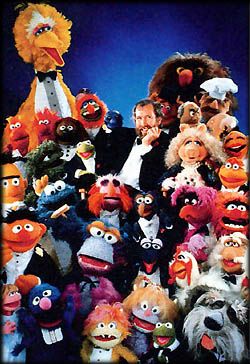 Whatever
happens over the coming years and regardless of the advantages and disadvantages
any of the other bidders would have had if they were successful in the
Muppet’s sale, it’s great to see the Jim Henson Company back
in family hands. At least fans can be sure the legacy left by the Muppet’s
creator will now be treated with the respect he deserves in a media world
that is today more focused on making money, than creating entertaining
television programs.
Whatever
happens over the coming years and regardless of the advantages and disadvantages
any of the other bidders would have had if they were successful in the
Muppet’s sale, it’s great to see the Jim Henson Company back
in family hands. At least fans can be sure the legacy left by the Muppet’s
creator will now be treated with the respect he deserves in a media world
that is today more focused on making money, than creating entertaining
television programs.
It may not
be easy for the new management to achieve everything they want. Difficult
choices will have to be made, but it does seem all the elements are there
for success. If the right moves are made and they continue to build upon
the foundations laid over the last few years it’s not unrealistic
to say that the Muppets current success should hopefully continue to build,
possibly to a level near what they have seen in the past. You can be sure
the management and staff at the Jim Henson Company are committed to doing
their best to bring this about and want to see it happen just as much
as the millions of fans world-wide who wish them every continued success.
What else could you expect from a company who’s motto is “When
in doubt, toss Penguins!”
|
|
|
home | news | collectibles | articles | forum | guides | radio | cards | help
Fan site Muppet Central created by Phillip Chapman. Updates by Muppet
Central Staff. All Muppets, Bear
Muppet Central exists to unite fans of the Muppets around the world. |